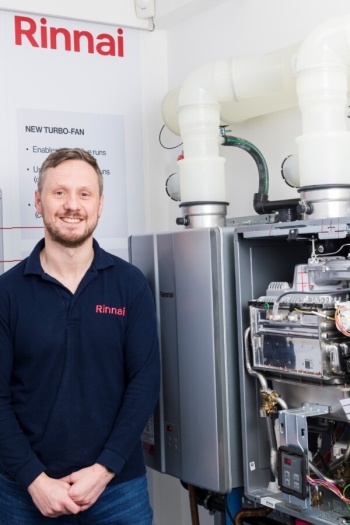Chris Goggin examines the situation as it stands in the UK energy, heating, and hot water supply industry.
There is currently uncertainty in the commercial heating and hot water provision sectors over customer costs, outside investment, future direction, and the execution of national law that promotes decarbonisation. The imminent general election in the UK and the potential for a change of administration, which would mean a revision of national energy strategy, will only cause more instability.
For more than a year, the opposition parties and the current UK administration have broken multiple environmental promises and seem to have lost interest in pursuing national decarbonisation. Policy changes have caused investors in the UK energy sector to become confused. Meanwhile, people must continue to be heated and have access to hot water through new construction and replacement. In terms of current or upcoming law, the UK energy market has seen recent reversals in the areas of national energy acquisition, property regulations, and gas boiler construction.
One of the UK’s biggest insurance company’s – Aviva – was quoted in The Times as saying: “the government increasingly focuses on short-term energy security over long-term sustainability.”
Large-scale renewable projects in the UK are not receiving enough funding due to political hesitation in the UK, growing global energy costs, and supply security concerns. Meanwhile, major business in Europe and America has embraced large-scale renewable projects. Aviva's belief that "the recent dilution in government net zero targets is an even bigger challenge and creates uncertainty" is also stated in the Times piece mentioned above.
A region's capacity to move towards NetZero is gauged by the Energy Transition Readiness Index 2023. This research was put out to assess a nation's prospects for making money off of renewable energy sources. According to the most recent research, investors would only be drawn to UK ventures if they can see stable regulations and transparent, straightforward governance. As of right now, neither has enough evidence to draw in outside capital investment.
The amount of capital incentives granted in the previous round of CfD offshore wind auctions did not draw a single bid, thus the UK government was forced to offer £800 million to encourage new offshore wind farms.
The MEES problem is ongoing at the same time. By virtue of these rules, every building must possess an Energy Performance Certificate (EPC), with a minimum rating of "E." The goal of additional modifications drafted in 2021 was to enhance the Minimum Energy Efficiency Standards to a "D" by 2025 and a "C" by 2030.
This would have required private property owners who rent out their properties across the United Kingdom to adhere to energy efficiency regulations in order to keep their tenants.
However, because their execution would have resulted in increased expenses for both landlords and tenants, the UK government has abandoned these ideas. It is anticipated that the MEES laws will be revised to include clean energy requirements for rental properties.
Furthermore, the "ban" on the installation of gas boilers at off-grid locations has been extended from 2026 to 2035. There has also been a delay with the "boiler tax." Under the planned tax structure, gas boiler manufacturers would have been penalised £3,000 for each installation that was missed if they had not substituted several percentage points of boiler sales for heat pump sales.
A prospective new administration later this year may also bring more changes to the UK energy industry by taking a different approach to cost and policy. Regarding the ridiculous state of play in the UK right now, one observer compared it to 'all the runners are lined up for a sprint start to a very rapid finish line'.
VISIT THE RINNAI BLOG PAGE AND SUBSCRIBE TO THE RINNAI NEWSLETTER TODAY @ www.rinnaiuk.com
Pathways and customer cost reductions for off-grid, residential, and commercial heating as well as hot water delivery are provided by Rinnai's H3 decarbonisation.

